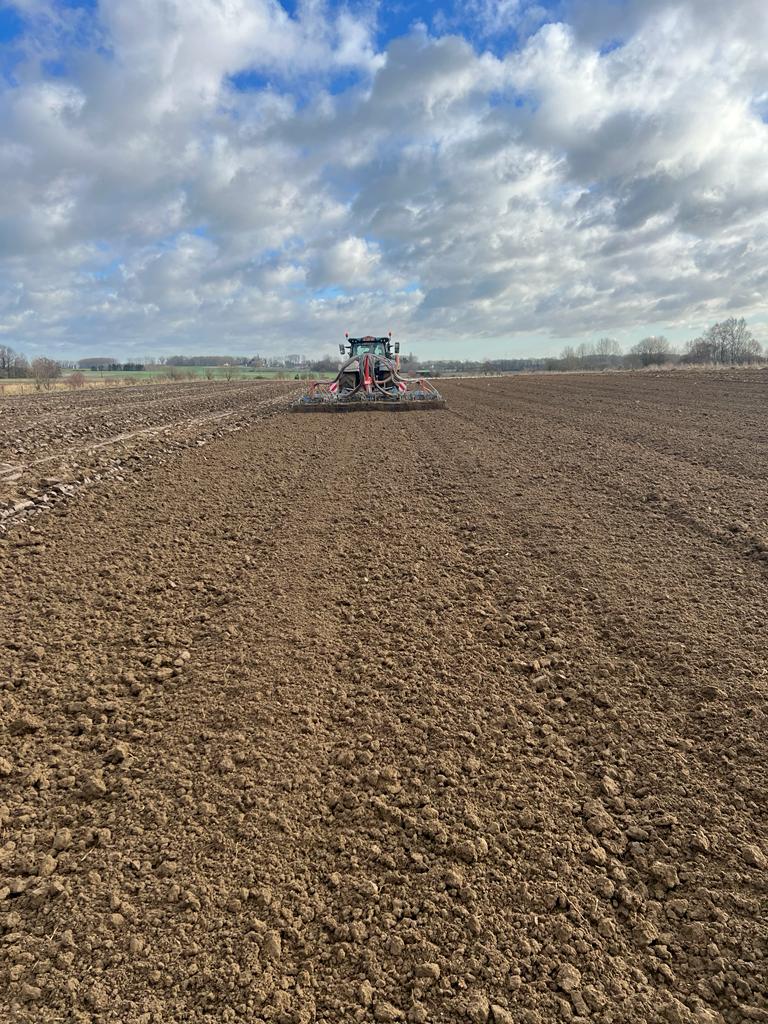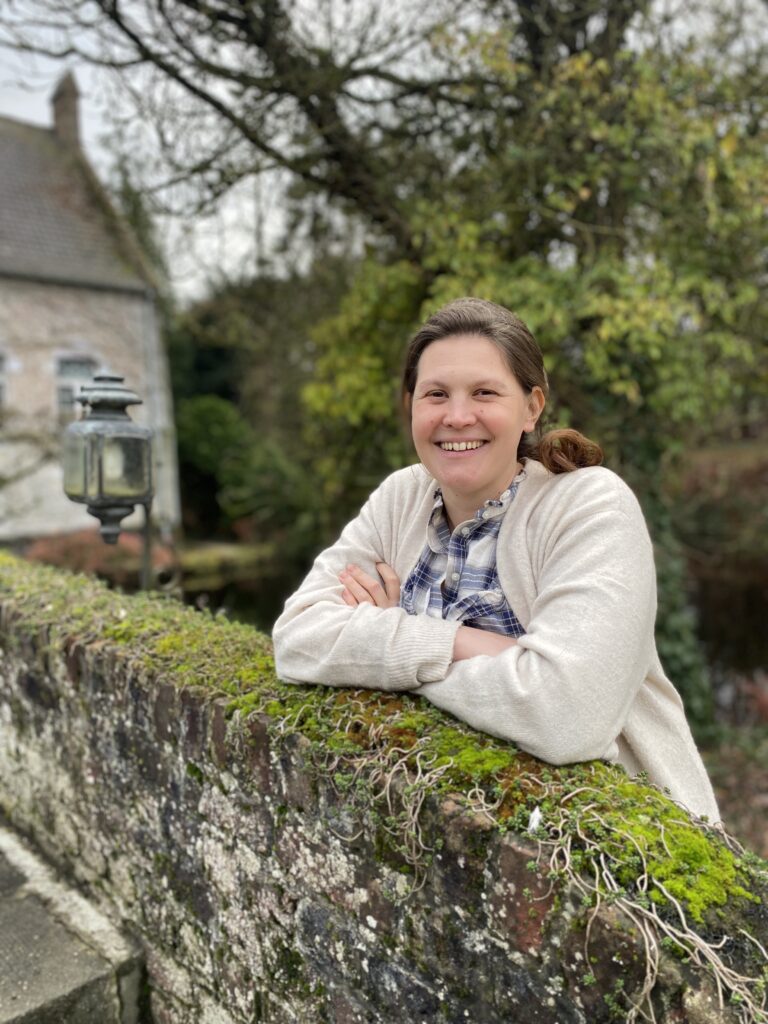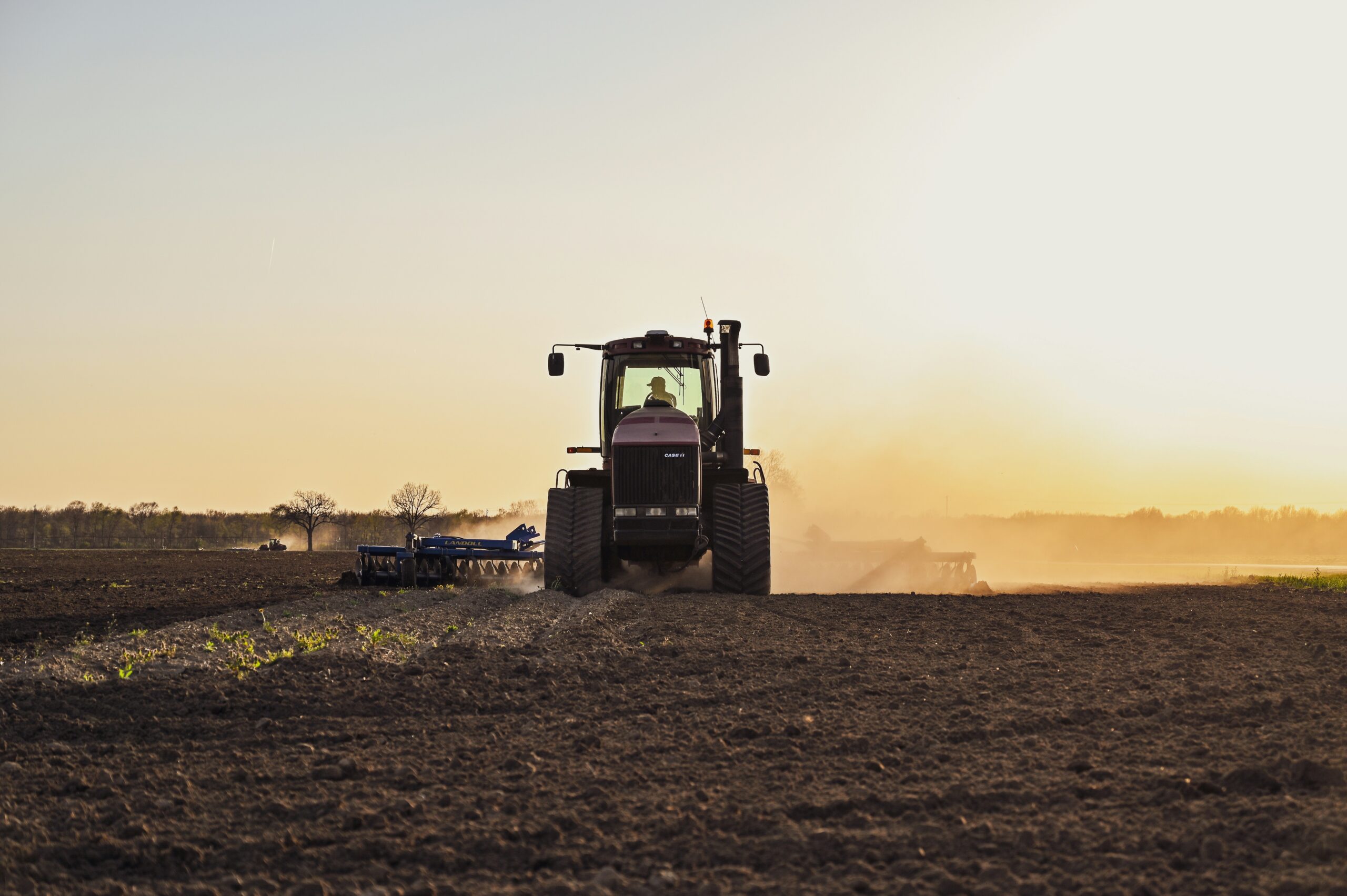Agroecological farming is a year-round effort
Conventional farming often focuses on a single crop, a monoculture, and leaves soil bare and exposed to wind and precipitation post-harvest. Agroecological farming requires “year-round roots in the ground” to protect soils from erosion. Agroecological practices also require fewer, but natural inputs such as compost. The practices require systems-based thinking and more effort, which pays off in healthier soils and healthier foods.
Emilien

During the winter, we make compost from cattle manure. We work it, we stir it, we put oxygen in it so that the material degrades more quickly. We will spread the compost in the spring to nourish the soil. As we do not have enough manure for acreage we plant, we produce excess straw and exchange it with neighboring breeders for their manure.
We also sow winter cereals. We sow the malt barley first. The barley will go to the brewery to make malt. We finished with winter wheat, which will be harvested in August. The wheat goes to the mill to make bread. The products will be served locally, through collaborations like our partnership with Brasserie Brunehaut.
For sowing, we use a classic seeder, as well as the plow. However, we only plow to a shallow depth, to respect the land, according to agroecological principles. If the land is muddy, shallow plowing brings dry soil to the surface, so that it could be sown correctly. We took advantage of the frost to avoid the mud and work in good conditions. We sowed 12 hectares in total and the last work took place on January 15 in Graux.
When winter brings too much snow or too much rain, it forces us to rest, because the earth is saturated with water. We take the opportunity to maintain the equipment: clean it, grease it, change wearing parts. Even if we need this period of rest to recharge our batteries, we still prefer to work.
The winter period is important for the earth. The soil must rest and recharge with water during the winter. The cold helps kill parasites or fungi. The cold is necessary and useful.
Agrotourism adds revenue, but also year-round effort
Many farms diversify their income through agritourism. From private events and conferences to farm tours and education, events offer both revenue and a way to connect with surrounding communities. Events are a significant part of activities at Domaine de Graux, where the farm’s natural beauty and stunning buildings and facilities provide a perfect venue.
Eve

Winter is the season for preparation and planning, both in terms of product marketing and events at the Domaine. During this season, I meet with potential partners, find product distribution channels, to show people around for the events that will take place in spring or summer. This week, for example, I had a fascinating discussion about our orchards and the endemic collection varieties they contain.
While winter is a time to meet, think, and prepare, it is also a season that challenges our creativity. For example, in December we launched the production of our onion confit product to avoid wasting surplus onions from our market gardening at the end of the season.
The best time in winter is when it’s cold, but full sun. It gives me the feeling of renewal for nature and a boost of fresh air. And I also like when the days start to get longer, like a promise towards spring. While gray and wet days are the hardest, I also know these days are important to recharge our groundwater.


